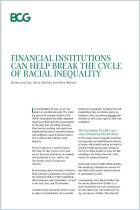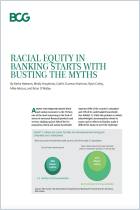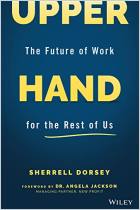
A $300 billion opportunity: Serving the emerging Black American consumer
There’s a big market to be unearthed if companies meet the real needs of Black consumers.
Recommendation
The McKinsey Quarterly examines the untapped market potential of Black consumers in this statistically heavy report by Michael Chui, Sajal Kohli, Brian Gregg and Shelley Stewart III. Black communities often lack basic services, such as banks, healthcare providers, stores carrying healthful food, internet access and decent housing. While Black customers are younger and less financially secure than the general population,retailers and service provides could reap more than $300 billion if they tailored their wares to these consumers and sold in “low-access” areas. Research finds that some Black buyers are willing to pay more than white consumers,even though they have less disposable income.
Summary
About the Authors
Michael Chui is a partner in McKinsey’s San Francisco office, where Brian Gregg is a senior partner. Sajal Kohli is a senior partner in the Chicago office; and Shelley Stewart III is a partner in the New Jersey office.


















Comment on this summary or 开始讨论